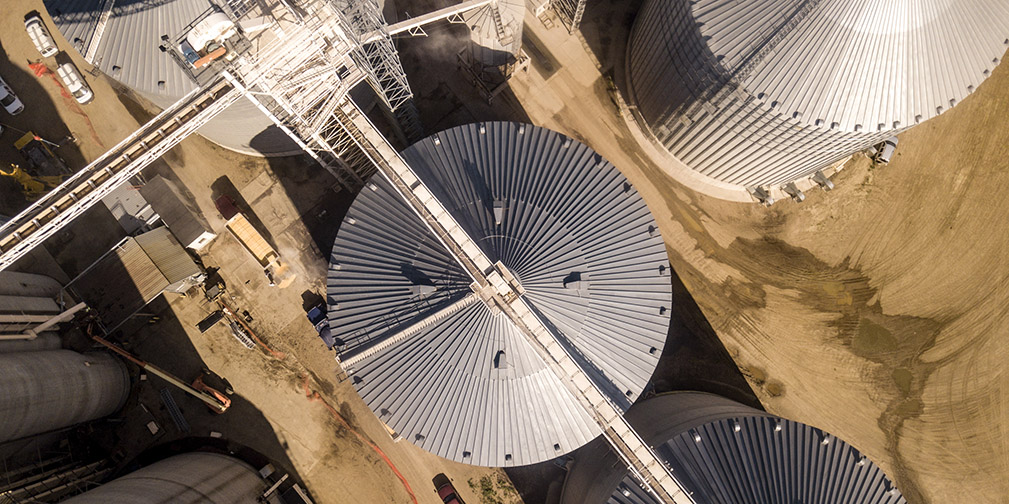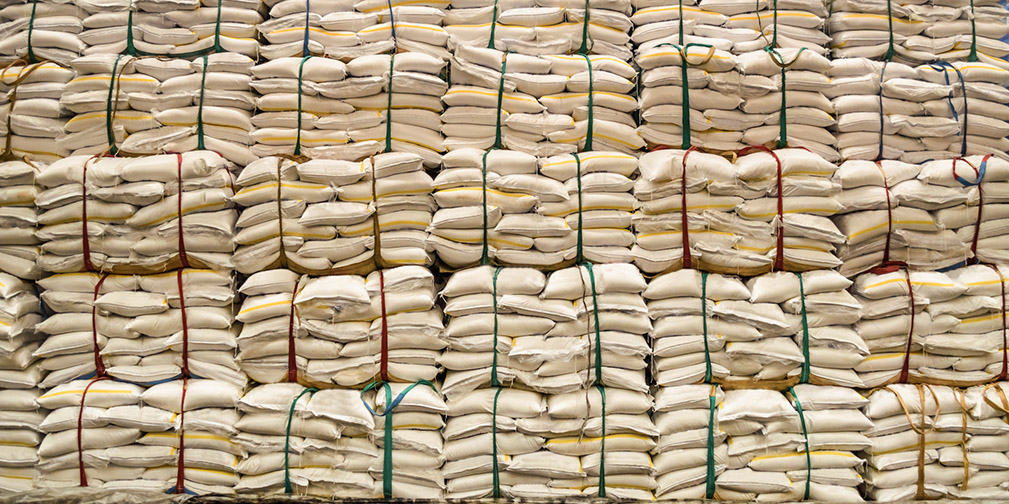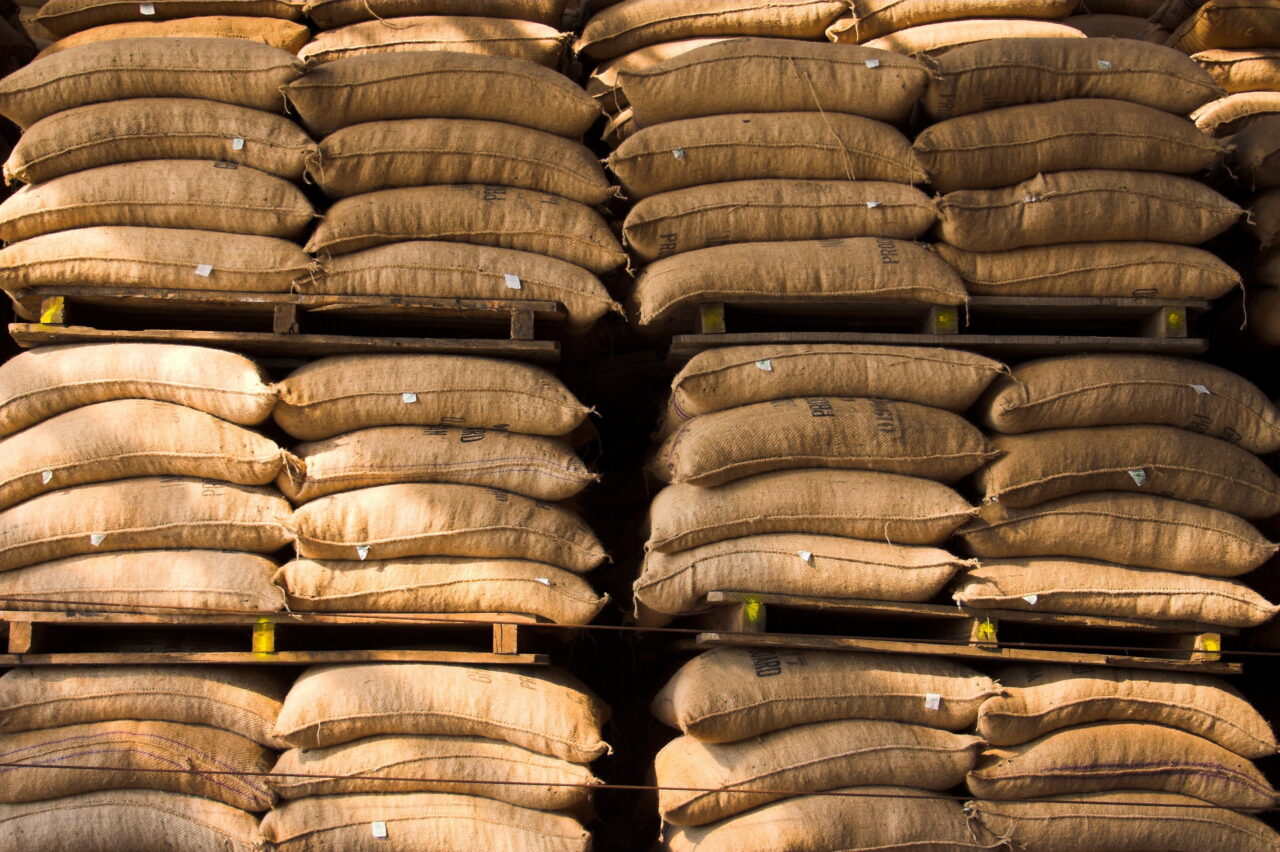Adaptation guarantee fund contribution energy and protein sources for animal feed
Adaptation guarantee fund contribution energy and protein sources for animal feed

The guarantee fund contribution for the following tariff numbers shall be adjusted as from 1st February 2026.
The guarantee fund contribution for the following tariff numbers shall be adjusted as from 1st February 2026:
| Tariff number | Product designation | until 31.01.26
CHF/kg |
as from 01.02.26
CHF/kg |
| 2306.3010 | Oil-cake and other solid residues of sunflower seeds, for animal feeding | 0.01 | 0.00 |

Adaptation guarantee fund contribution energy and protein sources for animal feed
Adaptation guarantee fund contribution energy and protein sources for animal feed

The guarantee fund contribution for the following tariff numbers shall be adjusted as from 1st November 2025.
The guarantee fund contribution for the following tariff numbers shall be adjusted as from 1st November 2025:
| Tariff number | Article | so far CHF/kg | new CHF/kg |
| 1108.1912 | Rice starch, for animal feeding | 0.04 | 0.00 |
| 1108.1992 | Other starches, for animal feeding | 0.04 | 0.00 |
| 1108.2020 | Inulin, for animal feeding | 0.04 | 0.00 |
| 2306.3010 | Oil-cake and other solid residues of sunflower seeds, for animal feeding | 0.00 | 0.01 |

New self-service customer portal: «Easy application for general import permits»!
New self-service customer portal: «Easy application for general import permits»!

We are pleased to present the modernised self-service customer portal of the Réserve Suisse cooperative. Following a successful test phase, the portal is now available to all compulsory stockpile holders, members and importers.
We are pleased to present the modernised self-service customer portal of the Réserve Suisse cooperative. Following a successful test phase, the portal is now available to all compulsory stockpile holders, members and importers.
Your advantage:
From now on, you can apply for your general import permits even faster and easier – completely digitally and with optimised processes.
You also benefit from:
- a clear and modern user interface
- improved user guidance and overview
- an intuitive dashboard with the most important key figures
- extended export functions (CSV, Excel)
👉 Directly to the customer portal: portal.reservesuisse.ch
The new portal gives you a centralised access to all functions and around the clock – whether you like to maintain your master data, view invoices or manage import permits (GIP).
We would like to thank all customers and members who actively participated in the beta test and supported us with their feedback.
Réserve Suisse – efficient, digital, anytime.

Article in the Luzerner Zeitung on the compulsory stocks
Article in the Luzerner Zeitung on the compulsory stocks

Some ridiculed them as a relic of the Cold War, but now the compulsory stocks are gaining in importance again because of the Ukraine conflict.
Some ridiculed them as a relic of the Cold War, but now the compulsory stocks are gaining in importance again because of the Ukraine conflict.

Le Temps article on self-sufficiency in Switzerland
Le Temps article on self-sufficiency in Switzerland

In a video article (French), the daily newspaper Le Temps examines the question of whether self-sufficiency in Switzerland would be possible and sensible.
In a video article (French), the daily newspaper Le Temps examines the question of whether self-sufficiency in Switzerland would be possible and sensible.
SRF reports about the compulsory stocks
SRF reports about the compulsory stocks

SRF has published a video report about the topic of compulsory stocks in the program Kassensturz and in the Kids-News.
SRF has published a video report about the topic of compulsory stocks in the program Kassensturz and in the Kids-News.
Kassensturz video report (German)
Kids-News video report (German)
Compulsory stocks of ethanol – statement of the réservesuisse cooperative
Compulsory stocks of ethanol – statement of the réservesuisse cooperative

The réservesuisse cooperative welcomes the establishment of a compulsory stock of ethanol. However, it does not agree with the proposed implementation as it violates the primacy of the economy.
The réservesuisse cooperative welcomes the establishment of a compulsory stock of ethanol. However, it does not agree with the proposed implementation as it violates the primacy of the economy.
How much import should it be?
How much import should it be?

There are hardly any food shortages in Switzerland. The reason for this is a compulsory stockpile system based on cooperation between the state and the private sector.
There are hardly any food shortages in Switzerland. The reason for this is a compulsory stockpile system based on cooperation between the state and the private sector.

Federal Office for National Economic Supply to become more efficient
Federal Office for National Economic Supply to become more efficient

The Federal Office for National Economic Supply is to remain an independent Federal Office. The militia system is to be retained, but the management of the Federal Office is to be strengthened.
The Federal Office for National Economic Supply is to remain an independent Federal Office. The militia system is to be retained, but the management of the Federal Office is to be strengthened.

Why réservesuisse is a member of Idée Coopérative
Why réservesuisse is a member of Idée Coopérative

The réservesuisse cooperative is a member of Idée Coopérative. On 21.08.2020, an interview with the director of the réservesuisse cooperative was published on the website ideecooperative.ch.
The réservesuisse cooperative is a member of Idée Coopérative. On 21.08.2020, an interview with the director of the réservesuisse cooperative was published on the website ideecooperative.ch.

Compulsory stockpiles of the Swiss Confederation – Will emergency stocks now be topped up?
Compulsory stockpiles of the Swiss Confederation – Will emergency stocks now be topped up?

Corona showed small gaps, even though there were never any shortages. Are emergency stocks now being replenished?
Corona showed small gaps, even though there were never any shortages. Are emergency stocks now being replenished?

Annual General Meeting of 13 May 2020
Annual General Meeting of 13 May 2020

Our first-time “virtual” AGM of 13 May 2020 is already history. Many thanks to all members whoparticipated in the electronic voting process. The results of this voting will be sent to you with theminutes of the 2020 AGM. Best regards from the réservesuisse team
Our first-time “virtual” AGM of 13 May 2020 is already history. Many thanks to all members whoparticipated in the electronic voting process. The results of this voting will be sent to you with theminutes of the 2020 AGM.
Best regards from the réservesuisse team
Full warehouses are more efficient than autarky
Full warehouses are more efficient than autarky

Is there a more-efficient alternative to high levels of self-sufficiency? Yes: strategic reserves. “Neue Zürcher Zeitung” newspaper of 14 May 2020
Is there a more-efficient alternative to high levels of self-sufficiency? Yes: strategic reserves.
Self-sufficiency or warehousing
Agriculture plays a key role in keeping the country supplied with vital goods during the state of exception caused by the coronavirus crisis. But the discussion on increasing our levels of agricultural self-sufficiency actually falls short. Switzerland possesses a unique system that links together agriculture, food production and the trading in and stock-management of food and feedstuffs.
AGM – Information to our members
AGM – Information to our members

The Federal Council has declared a special situation due to the corona crisis and has, as a precautionary measure, prohibited large events. This likewise affects our AGM, originally scheduled for 13 May 2020 at the Bellevue Palace Hotel in Bern, which cannot now be held as planned. We will inform…
The Federal Council has declared a special situation due to the corona crisis and has, as a precautionary measure, prohibited large events. This likewise affects our AGM, originally scheduled for 13 May 2020 at the Bellevue Palace Hotel in Bern, which cannot now be held as planned. We will inform you promptly as further details of implementation reach us.
We apologise for the cancellation of the AGM, and thank you for your understanding in these exceptional circumstances.
Corona crisis – domestic food production running at full tilt
Corona crisis – domestic food production running at full tilt

Full speed ahead for food manufacturers’ machinery, with no need to resort to emergency reserves as yet. Full version of the “Eco” broadcast of 30 March 2020 (in German).
Full speed ahead for food manufacturers’ machinery, with no need to resort to emergency reserves as yet.
Full version of the “Eco” broadcast of 30 March 2020 (in German).
Domestic food production is running at full tilt.
While many parts of the Swiss economy are at a standstill, food manufacturers’ production plants are running deep into the night and at weekends. The firms concerned are finding it harder, in the midst of the Corona crisis, to obtain raw materials from abroad. There has been no need, as yet, to open the emergency warehouses containing the strategic reserves of the Swiss government.
Full version of the “Eco” broadcast of 30 March 2020 (in German).
Don’t hoard – Switzerland has emergency supplies
Don’t hoard – Switzerland has emergency supplies

The slogan “We advise – emergency supplies” dates from the post-War period and with the outbreak of the coronavirus epidemic has become unexpectedly topical.
The slogan “We advise – emergency supplies” dates from the post-War period and with the outbreak of the coronavirus epidemic has become unexpectedly topical. Suddenly, the question of emergency supplies is again a key issue in Switzerland. This seems to be triggering panic-buying, which has led to gaping voids on the pasta and rice shelves and in canned goods sections. Demand for staple and non-perishable goods is rising because of the coronavirus outbreak. The Swiss are stocking up with emergency supplies for the worst-case scenario.
There is a secure supply of food for the population
But for the moment, there is no question of shortages. There is nothing to prevent retailers providing sufficient food. There may be “empty” shelves here and there, wherever local demand exceeds in-store stocks.
And for emergencies, Switzerland has well-filled, mandatory storage facilities with basic foodstuffs. These mandatory stocks of vital foodstuffs correspond to 3-4 months’ worth of needs. These stocks are only released, however, when the economy itself is no longer able to satisfy demand. And in Switzerland, this is not the case at the moment.
The Federal Government controls the emergency stocks. The authorisation to release mandatory stocks is issued by the Federal Department of Economic Affairs, Education and Research (EAER). This it does in close collaboration with the Federal Office for National Economic Supply (FONES) and the National Economic Supply organisation (NES).
New guarantee fund contributions for rice for consumption from 1st March 2020
New guarantee fund contributions for rice for consumption from 1st March 2020

From 1st March 2020, the guarantee fund contribution for rice for consumption amounts to CHF 0.0520/kg (CHF 0.0475/kg so far).
From 1st March 2020, the guarantee fund contribution for rice for consumption amounts to CHF 0.0520/kg (CHF 0.0475/kg so far).
The valid aproaches for all goods are available here.

Why Switzerland stockpiles
Why Switzerland stockpiles

When there is a shortage of certain drugs or in case of oil import difficulties, the state intervenes and orders the release of compulsory stocks. However, the Confederation does not run its own warehouses, but obliges companies to maintain sufficient stocks of specific goods. Read the whole article on…
When there is a shortage of certain drugs or in case of oil import difficulties, the state intervenes and orders the release of compulsory stocks. However, the Confederation does not run its own warehouses, but obliges companies to maintain sufficient stocks of specific goods.
Read the whole article on swissinfo.ch (in german)

The range is adjusted
The Federal Council determines what belongs in the range of compulsory stocks. The responsibility lies with the Federal Office for National Economic Supply. The range is regularly adjusted.
Coffee is ‘not essential’
Coffee is ‘not essential’

Switzerland on Wednesday announced plans to abolish the nation’s emergency stockpile of coffee, in place for decades, after declaring the beans not vital for human survival, though opposition to the proposal is brewing. Read the whole article on swissinfo.ch (in german)
Switzerland on Wednesday announced plans to abolish the nation’s emergency stockpile of coffee, in place for decades, after declaring the beans not vital for human survival, though opposition to the proposal is brewing.

Coffee is not essential for life
According to the plan released for public comment, coffee stockpiling obligations would expire by the end of 2022, with companies free to draw down what they store in their warehouses.
“The Federal Office for National Economic Supply has concluded coffee…is not essential for life,” the government said. “Coffee has almost no calories and subsequently does not contribute, from the physiological perspective, to safeguarding nutrition.”
Read the whole article on swissinfo.ch (in german)
